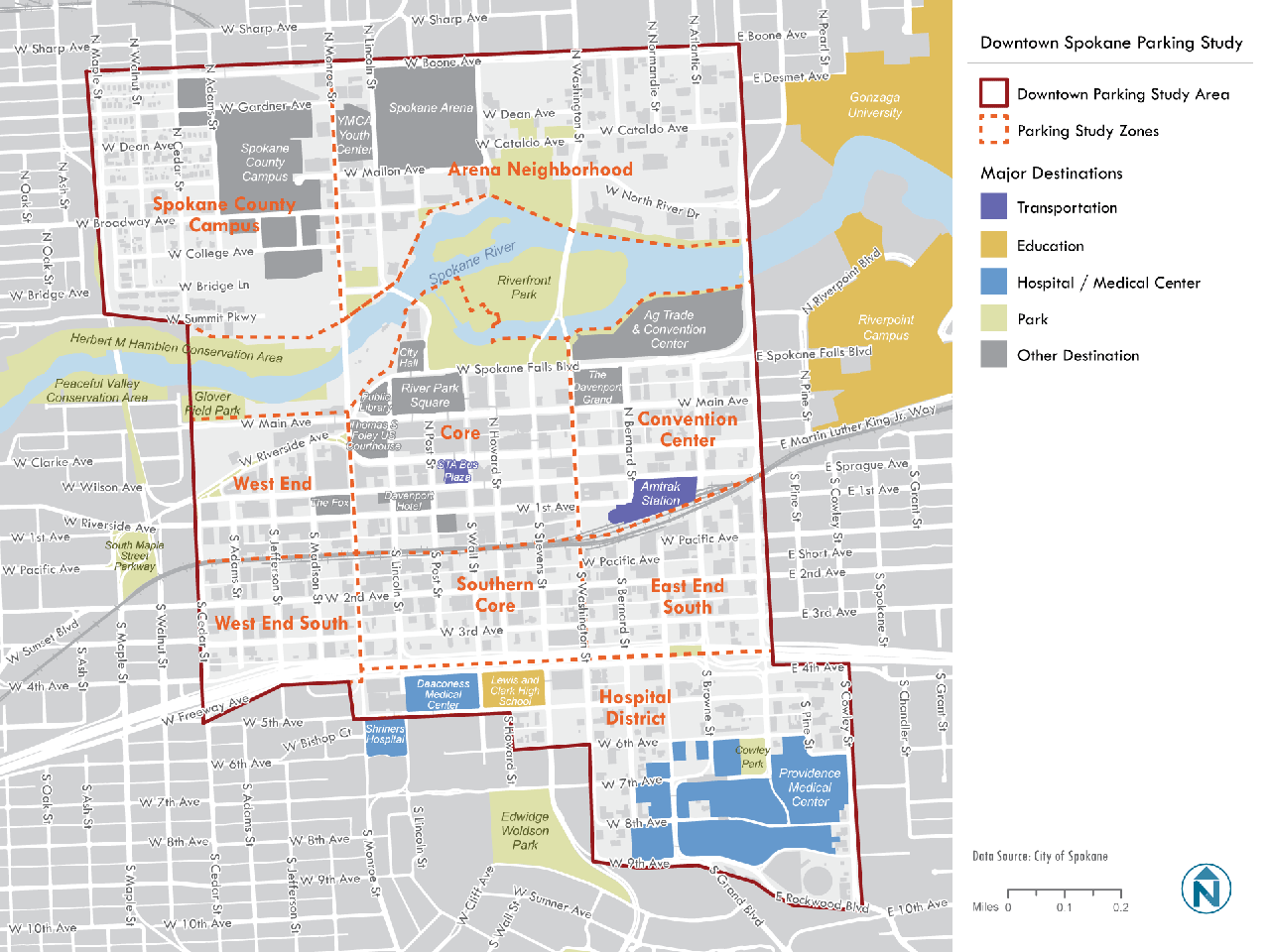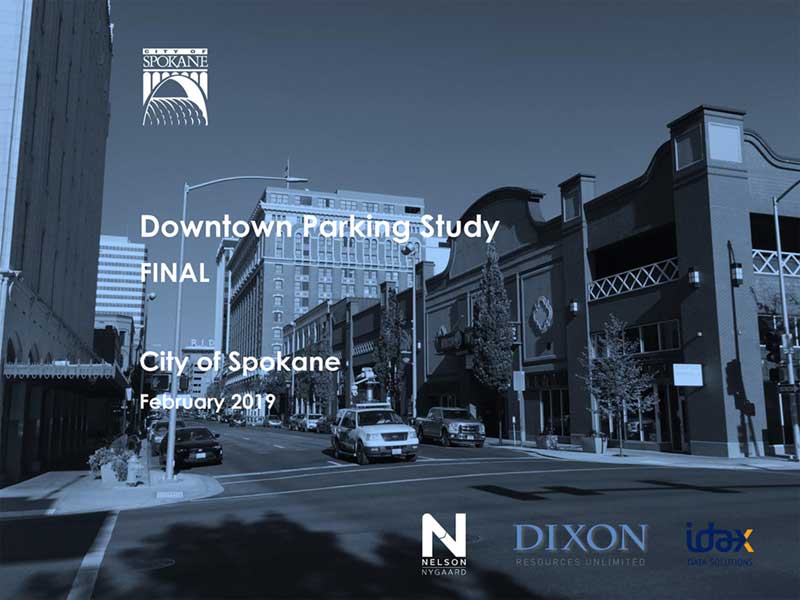Downtown Parking Study

What is the Downtown Parking Study?
The Downtown Parking Study thoroughly evaluated the existing parking system, and conducted extensive outreach with stakeholders and the general public. Following that evaluation and outreach, the City and consultant team developed a comprehensive package of recommendations designed to facilitate growth and activity downtown, while making parking more convenient and user-friendly for residents, businesses, employees, and visitors.
The final outcome is this document, which serves as the roadmap for Spokane's downtown parking future.
Where was the study area?
What were the findings?
- There are 37,000 parking spaces in downtown Spokane. 85% are off street, 15% are on street.
- Parking occupies 30% of land in the downtown study area.
- Even during the busiest time of day (weekdays at 10 a.m. to 12 p.m.), parking occupancy across the study area peaks at 56%. At peak, thousands of parking spaces are underutilized.
- Parking demand varies by geography, on- versus off-street space, and time of day. The Downtown Core experiences higher demand, especially on-street parking, yet many areas have underutilized spaces, even during the peak.
- People who overstay the time limit impact access to local businesses.
- The most convenient spaces are underpriced, incentivizing circling for parking. In the Downtown Core, off-street parking costs 2.2 times as much as on-street parking.
- The City of Spokane manages less than 1% of off-street parking. Off-street management is dispersed, presenting challenges for rate-setting, communication, branding, and technology.
- The fragmented parking system means only 51% of parking is available to general public at all times.
- Wayfinding, pricing, and payment systems are confusing and uncoordinated.
- Downtown Spokane is growing, and Spokanites have the opportunity to leverage existing parking assets, new development, and multimodal investments to improve downtown parking
What are the recommendations?
The final plan developed a set of 20 strategies within 7 groups enumerated and briefly described below:
- Adopt Downtown Parking Goals. This strategy proposes six goals which guide the evaluation of strategies in this plan, and should also guide future planning efforts.
- Maximize Use of Existing Supply. Management of existing parking can be improved with the implementation of a Performance Based Parking Management Program, as well as adjustments to on-street regulation, and prioritization of shared parking programs.
- Optimize Management and Policy Programs. There are many competing users for both on and off street parking spaces – this group of strategies proposes the modernization of existing permit programs and event management policy.
- Enhance Administration and Operations. Ensuring curb access requires consistent enforcement of curb regulations – Spokane's enforcement program needs investment and modernization.
- Make Parking Simple to Find and Use. Many have trouble finding the available downtown parking spaces. A formal Downtown parking “brand” and a wayfinding program are proposed, in addition to a more general marketing and communications plan. Downtown payment systems are also recommended for improvement.
- Update City Policy and the Zoning Code. Policy updates are needed to ensure sustainable long-term growth and support multimodal travel to and from downtown.
- Reduce Parking Demand. Strengthening the availability and encouraging the use of travel options in Downtown Spokane can further extend the efficiency of the existing parking system, while also achieving broader goals regarding sustainability, livability, and equity.
Contact Us
Have a question about parking? Call 311, or for outside city limits, 509.755.CITY (2489).
Parking Studies
Downtown Parking Study
See the last two parking studies:

